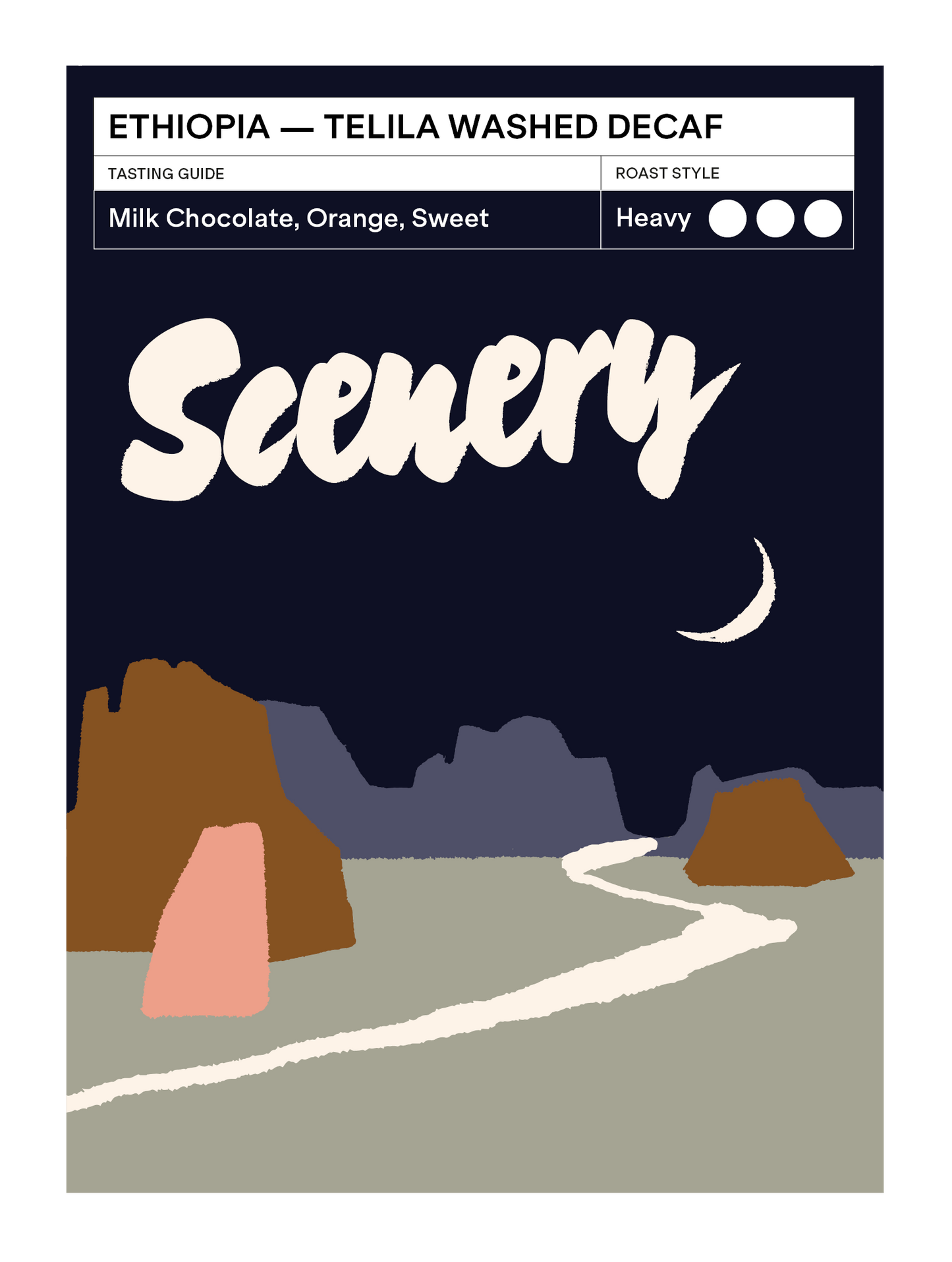
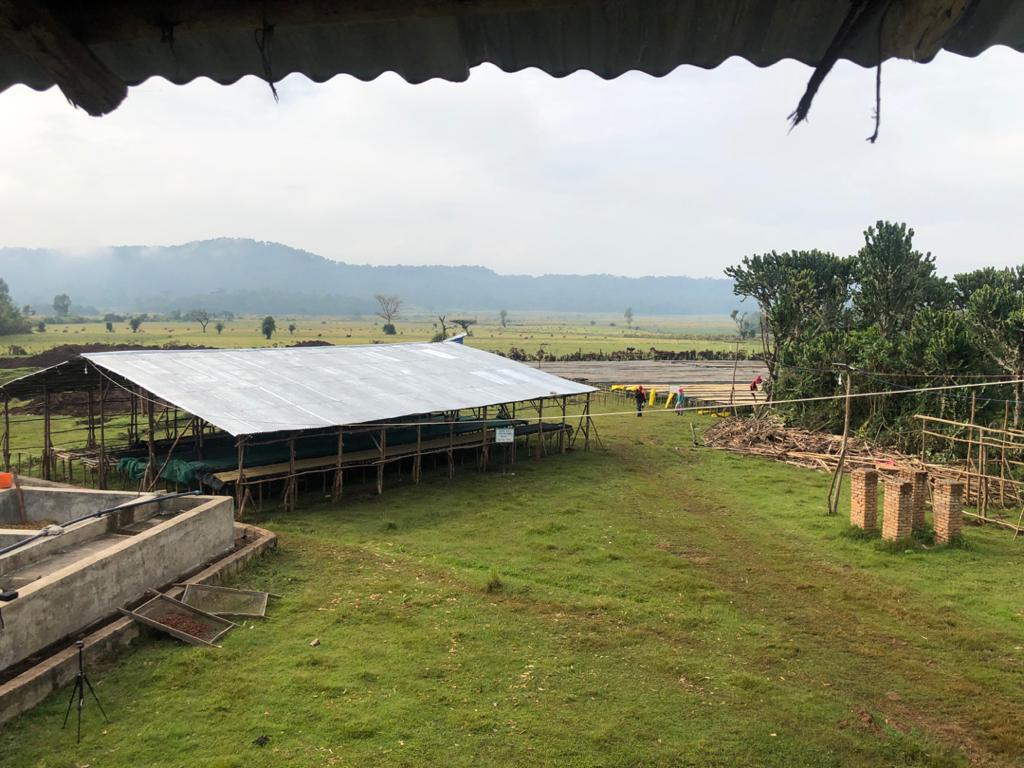
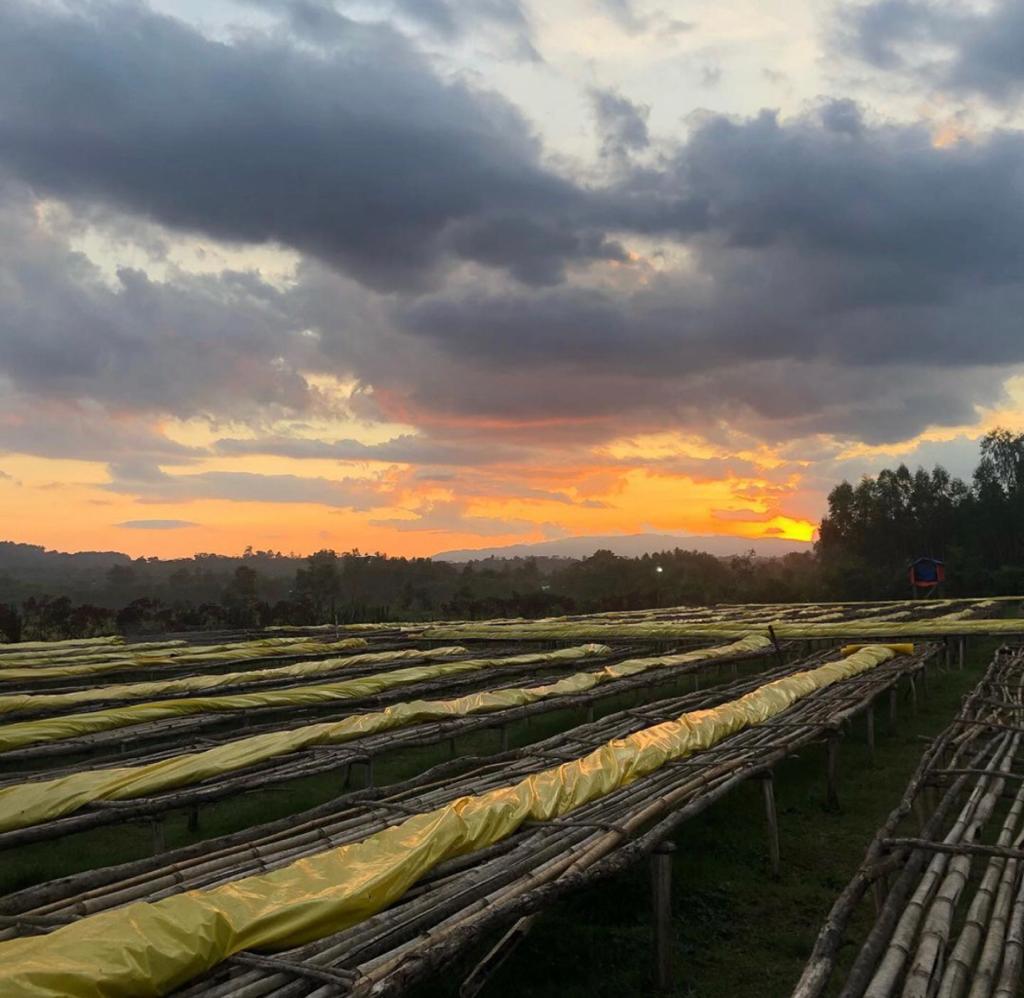
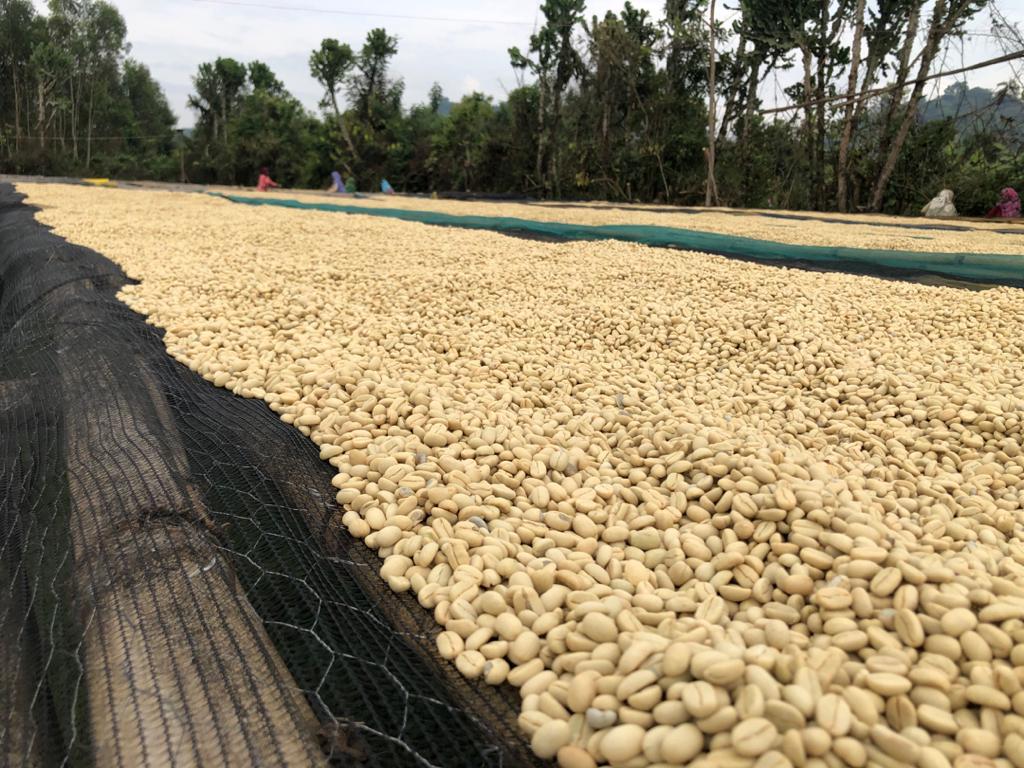
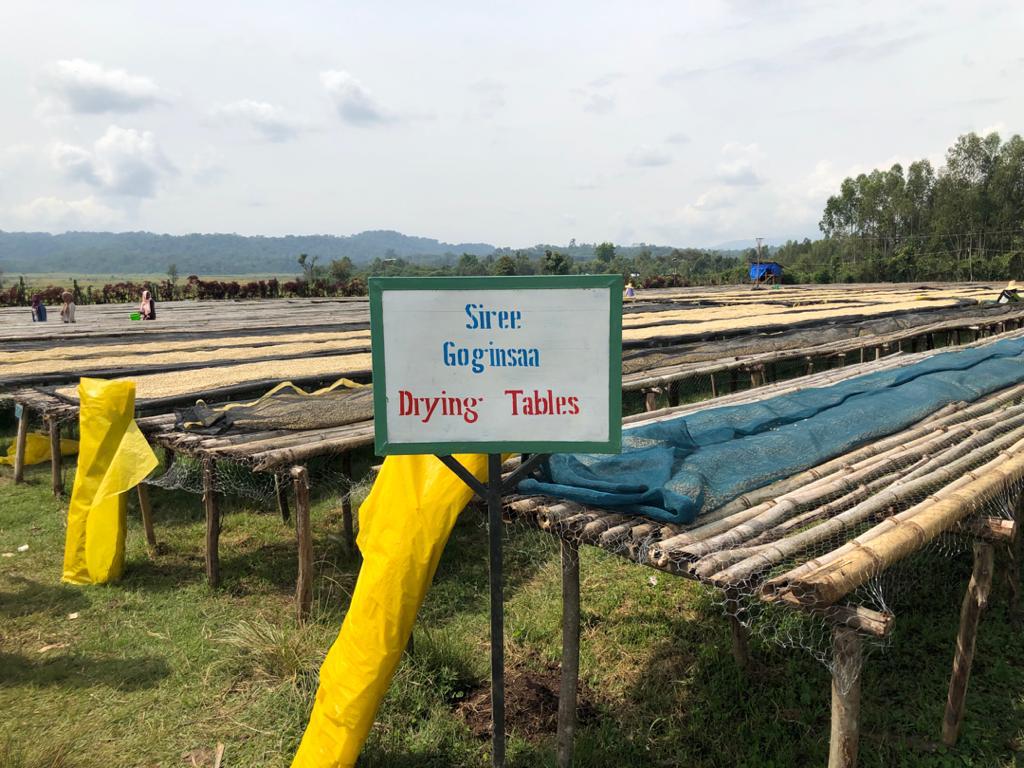
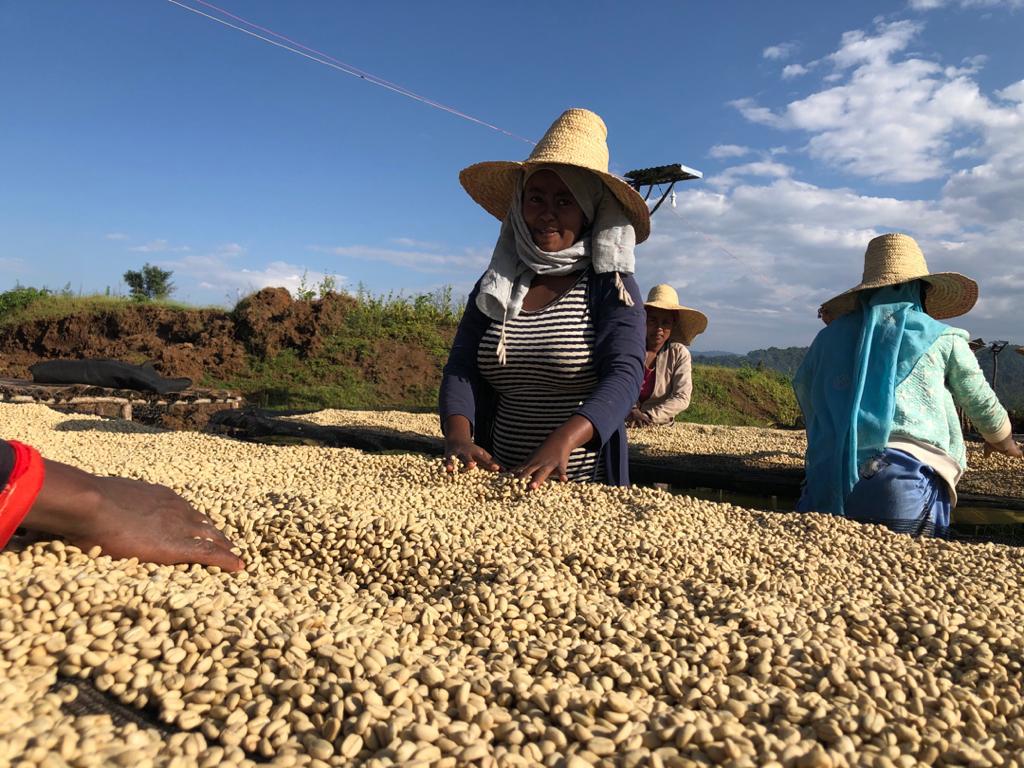

Brew Guide:
Best Brewed with: Espresso, Moka Pot, French Press
Medium-Heavy Roaster Influence:
Roasted for solubility & balanced acidity (E.A. decaf can be intensely tropical!) and texture.
Best rested: 1-2 weeks
For Filter: We recommend a ratio of 65g/L and 90°C water
For Espresso: 18g in, 40g out, 28-32s for a classic style of espresso.
We're tasting: Milk chocolate orange, spiced malt loaf, brown butter, caramel.
Please note - due to the nature of the physiochemical changes undergone during the decaffeination, this coffee will visually appear to be a much darker roast than its actual “perceived” roast degree
Traceability:
Country of Origin: |
Ethiopia |
Region: |
Kecho Anderacha, Gera, Jimma |
Producer Group: |
Smallholder farmers delivering cherry to Telila |
Station: |
Telila Washing Station |
Varieties: |
JARC Cultivars & local landraces |
Elevation: |
2000 MASL |
Process: |
Cherries delivered to Telila, depulped with an 18-24 hr dry fermentation, before washing & drying on raised beds. “E.A Process” (same as sugarcane) decaffeinated by Coffee Compagnie GmbH. |
Import Partner: |
Osito |
Harvest: |
23/24 - Arrived UK: October 24 |
The Story:
We've known of Mike Mamo since we first met him in Addis Abada in 2019 - cupping in his lab, and visiting his dry mill. Since we started Scenery we've been looking for a way to get some of Mike's coffee in the offer, and with these late season arrivals, not only have we got this stunning decaf, but we've had the excellent Genji Challa honey lot running through Facility V6.
We love Sugarcane/EA decaf - it really is miles above other processes - but we think there's been a definitive monopoly of Colombian decaf as a result. The reason is as follows - Ethyl Acetate is a readily available solvent and natural compound found in many fruits and foodstuffs. It's very easily produced - ethyl alcohol created during fermentation is combined with acetic acid (vinegar) to create Ethyl Acetate, a compound which has a high affinity for selectively dissolving caffeine.
Colombia has two very complimentary agricultural industries - that of sugarcane, and of coffee. Sugarcane processing produces the raw materials to make plentiful, cheap ethyl acetate, using up a waste product for good use, and there is a ready supply of excellent coffee. Descafecol is the only "sugarcane" decaffeination plant in the world, and the explosion in popularity of this style of decaf has seen them run at full capacity non-stop for many years (sometimes with the drying protocols of their output somewhat compromised to keep the volume flowing). Colombia exports green coffee - you cannot import it, nor would it make financial sense to ship coffee from Ethiopia to Colombia for decaffination even if it was legally allowed (lest your decaf cost the same as a competition Gesha)
We've been itching to see the same process applied to other origins. Enter Coffee Compagnie in Germany. They've started using locally sourced Ethyl Acetate (sounds scary, but it really isn't) to run the same process, but due to their location in a consuming country (a major logistical transit point at that) means we can spread our decaf buying programme across a wider spread of origins, whilst keeping the profile of EA decaf we love so dearly.
We don't want to walk away from our buying relationship with the producers who make up the Villamaría natty decaf we've been loving since day 1, so our intention is to rotate seasonally, with a return to where it all started each year.
- Choosing a selection results in a full page refresh.
- Opens in a new window.







